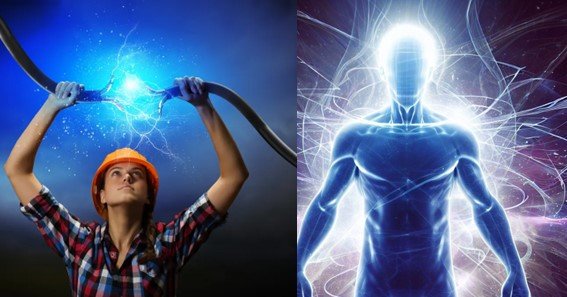Electricity in the human body is a critical force that enables everything from the beating of your heart to the transmission of thoughts. This bioelectricity is created by the movement of ions—charged particles like sodium, potassium, calcium, and magnesium—across cell membranes. Understanding how electricity operates within our bodies can shed light on many vital processes, from nerve impulses to muscle contractions.
How Does Electricity Work in the Human Body?
The Generation of Bioelectricity
The human body generates electricity primarily through the movement of ions across cell membranes. These ions create electrical potentials, which are differences in charge across the membrane. When a neuron (a type of cell) needs to send a signal, it alters the balance of ions inside and outside the cell, creating an electrical current known as an action potential. This current travels along the neuron, allowing communication between different parts of the body, like sending signals from your brain to your muscles.
Key Roles of Bioelectricity
- Nerve Impulses: Nerve cells, or neurons, use electrical signals to communicate. When you touch something hot, for example, sensory neurons generate an electrical signal that travels to your brain, which quickly sends a signal back to your muscles to pull your hand away.
- Heartbeats: The heart relies on a steady flow of electrical impulses to maintain its rhythm. Special cells in the heart generate these impulses, which travel through a network of fibers, causing the heart muscles to contract in a coordinated manner. This is what keeps your heart beating regularly and efficiently.
- Muscle Contractions: When your brain decides to move a muscle, it sends an electrical signal through your nerves to the muscle. This signal triggers the muscle fibers to contract, enabling movement.
- Cognitive Functions: Your brain is a powerhouse of electrical activity. Neurons constantly fire electrical signals, allowing you to think, feel, and make decisions. This intricate network of bioelectricity is crucial for everything from simple reflexes to complex thoughts.

FAQ
- How does the human body generate electricity?
The body generates electricity through the movement of ions like sodium and potassium across cell membranes, creating electrical potentials that drive various biological processes. - Why is electricity important for the heart?
Electricity is essential for maintaining the heart’s rhythm. Special cells generate electrical impulses that coordinate the heartbeat, ensuring blood is pumped effectively throughout the body. - Can the electrical activity in the body be measured?
Yes, medical devices like ECGs (electrocardiograms) measure the electrical activity of the heart, while EEGs (electroencephalograms) measure brain activity. - What happens if the body’s electrical signals are disrupted?
Disruptions in electrical signals can lead to serious health issues, such as arrhythmias in the heart, seizures in the brain, or muscle paralysis. - Is it possible to use electricity therapeutically in medicine?
Yes, electrical stimulation is used in various therapies to treat conditions like chronic pain, muscle injuries, and even depression, highlighting the potential of bioelectricity in medicine.










